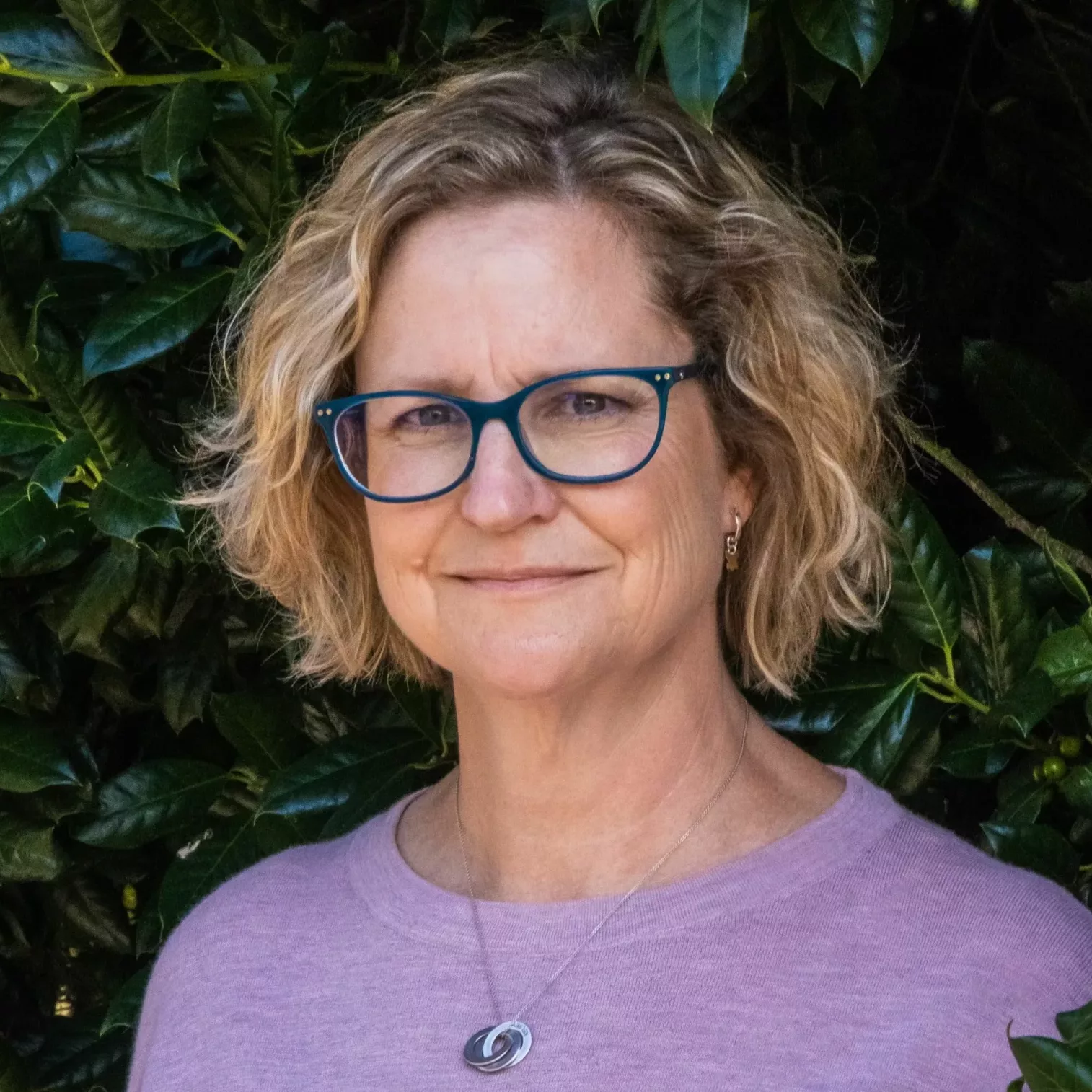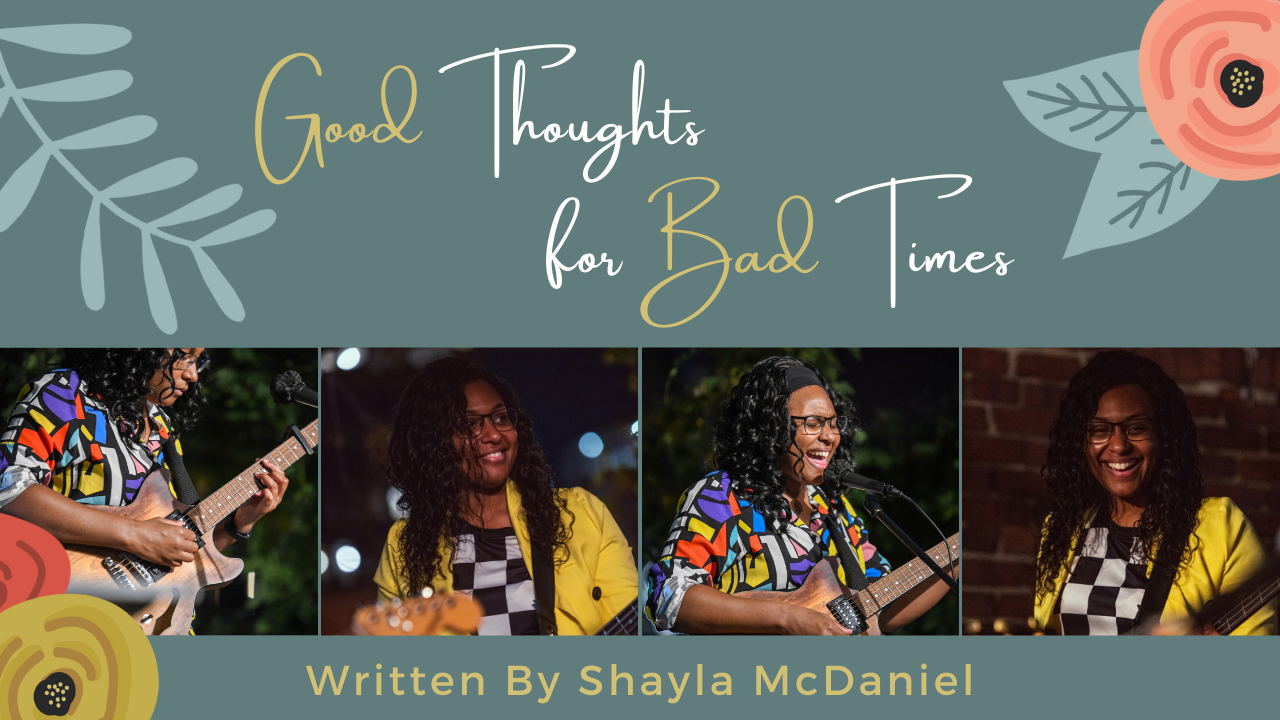Cultivating a Sense of Calm
Written By: Booth Andrews

Booth Andrews | Founder of The Booth Andrews Company
The most accessed resource I have ever created–in both downloadable and podcast format–is called the 7 Tips for Calm.
I created it in the early days of the COVID-19 pandemic.
I remember being in my kitchen, shortly after the lockdowns began, observing how calm I felt in the midst of this “once in a lifetime” event. And then I thought “OH! I KNOW HOW TO DO THIS.”
By “this” I don’t mean, navigate a pandemic. I mean waking up every morning in a world that looks nothing like we thought it would. Where all bets are off. Where the only certainty is uncertainty. And even the smallest things that we thought we could count on have to be renegotiated on a daily basis.
Someone who has only known me in this iteration of my life asked me recently if I was always this calm. She was referring to my time as a leader of a multi-million dollar organization. My answer to her was “Yes. Unless someone was coming after my people.”
Feedback from my clients and program participants underscores that one of the reasons people are drawn to work with me is because of the sense of calm I am able to embody. I traveled with some college friends a couple of years ago, and one of them made personalized t-shirts for everyone. Mine says “The CALM One”.
But upon reflection, I would put an asterisk next to my answer to the question about whether I have always been this calm.
You see, I used to source my sense of calm from my logical, rational mind; a natural side effect of growing up idolizing a Vulcan. And also, because experiencing trauma breeds a certain capacity for chaos.
Not insignificantly, I started dissociating from my body when I was a small child. So, I was not particularly aware of my body’s perfectly legitimate alarm signals. For the record, while this strategy can be super convenient and efficient, I do not recommend it. See crash and burn for reference.
“I learned the hard way that sourcing our calm and strength from the mind alone is an untenable proposition.”
The problem with sourcing our sense of calm from the mind is multi-faceted, but where it first got tricky for me was when I started to experience mental illness. If the mind is your primary asset, weapon and shield against the uncertainties of the world, and then your mind is no longer able to function in the way you have come to expect and, frankly, count on, then suddenly everything is terrifying. Especially your own thoughts.
The other more universal problem I see with sourcing calm from the mind, is that objectively, the world is a sh*t show. I don’t know if humanity faces greater threats than we have ever faced or if we just have 24/7 access to the worst of the human experience at our fingertips all of the time. Pain and suffering are everywhere. In our homes, families, communities and the greater world.
I would be remiss if I didn’t point out that many of the atrocities we have experienced throughout human history have been inflicted on each other based on who we perceive to be “not like us” (aka a threat) based on a variety of narratives that push certain agendas held by those with the most (or those who want to claim the most) power.
What is also clear to me is that the “way things have always been” and our trust in institutions (companies, employers, churches, governments) and even our cultural narratives, particularly those around worthiness and success, to keep us safe and to ensure our best interests has been eroding for decades.
How do we hold “realistic optimism” and continue to take grounded, intentional action to fully embody our potential to make the world better, whether in the smallest or largest of ways?
How do we stay steady against the onslaught that would have us lose hope and cede our futures to individuals and institutions who do not deserve our trust or our acquiescence?
How do we challenge the status quo, and shape new futures, when we are biologically wired to distrust change and culturally conditioned to distrust each other?
“The mind is a wonderful servant, but a terrible master.” ~attributed to Robin Sharma (among others)
“From a state of calm, we are more able to access our capacity for healing, empathy, creative problem solving, intuitive knowing (and a host of other internal resources).”
I learned the hard way that sourcing our calm and strength from the mind alone is an untenable proposition. It turns out that the body–if well-tended and supported through food, water, movement, connection, and rest–is a resilient ally.
The 7 Tips for Calm, which I will list here (click this link to access the full download with more descriptive information) are free, only take a few moments, and increase in impact when repeated over time:
- Drink water
- Practice gratitude (not the same thing as “toxic positivity”, “good vibes only”, or “emotional bypassing”)
- Spend 15 minutes with or in nature
- Name your emotions
- Disconnect from your devices
- Balance your inhale and exhale
- Connect to your five senses
These practices allow us to dip our toe(s) back into the present moment. To reduce certain stressors and to send calming signals to the nervous system (aka nervous system regulation). To allow the body a moment to “stand down” for a few moments from the perpetual assault of information and often conflicting demands on our time, energy and resources.
When we are able to send the body signals of safety, it’s like putting a gentle hand on the spinning hamster wheel that is propelling us forward from the inside. From a state of calm, we are more able to access our capacity for healing, empathy, creative problem solving, intuitive knowing (and a host of other internal resources).
Your ability to access and maintain calm is a function of your barometer for threat—which will be unique to you based on your lived experience–and your capacity to return yourself to a regulated state if and as you need to.
To be clear, the goal isn’t necessarily to “stay calm and soldier on”. Because the healthiest nervous system is a flexible nervous system.
There are times when we absolutely need to channel our response to threat into action; whether for our own safety or the safety of others.
There are times when we need to be able to bring ourselves back to a state of grounded calm in order to take back control of our own bus, and make sure that the part of us who is driving, is the part that hasn’t lost touch with our own internal compass, our own definitions of success, or the inputs that help us stay well.
And there are times when we are ready–because we know how to call ourselves back to a regulated state from which we can recover and integrate–to stretch outside our comfort zone and expand our capacity to take aligned, intentional action toward our goals.
Some of us may need support to heal and expand our nervous systems so that we can shift blocks and reestablish the pathways that connect us to our own inner state of calm.
No matter where you are on the spectrum–chronically stressed and burned out (or on the verge), (re)building your capacity to spend more time in a state of calm, or ready to spread your wings and learn to fly a little further or a little higher, know that you can always begin right now. The smallest actions, repeated over time, can have profound results.
I hope these resources will support you where you are. For more resources and programs to help you reclaim your wholeness and tap into your potential, subscribe to my newsletter.

About the author » Booth Andrews
Booth Andrews provides nourishing resources and support for the whole human(s) at the intersection of business and well-being. You can also listen to Booth on The Freedom from Empty Podcast.
Share This Story, Choose Your Platform!
More From Our Blog
This has been a big year for our family. After years of searching for a place to put down roots, last summer we purchased a dream property in North Carolina. The renovated farmhouse, heirloom apple trees, ample garden and chicken coop spoke to me from the moment I saw them.
I wrote 'Good Thoughts for Bad Times' for Mental Health Awareness Month. Even the smallest flicker of a good memory can bring a bit of hope to some of my darkest days. In my songs there are recurring themes of loving others, loving yourself, and mental health.
I haven’t been in a committed partnership (or intimate relationship of any kind) for almost 9 years. Sometimes it is lonely … missing that deep connection with another adult human in my day-to-day. I am also acutely aware that we can be in a committed partnership and still feel very much alone. I was pondering these things earlier this year when I realized something.



